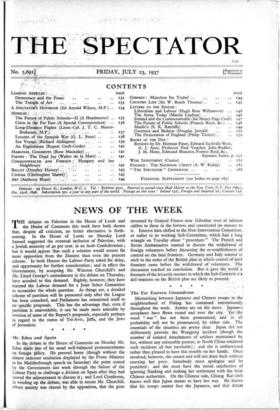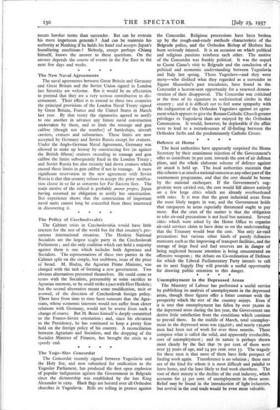The Far Eastern Conundrum Skirmishing between Japanese and Chinese troops
in the neighbourhood of Peking has continued intermittently throughout the week. Armies are on the move. Japans: aeroplanes have flbwn round and over the city. Yet the word " war ". has not been pronounced, and in all probability will not be pronounced, by either side. The essentials of the situation are pretty clear. Japan did not deliberately provoke the Wangping incident (though the number of isolated detachments of soldiers maintained by her, without any colourable pretext, in North China rendered such incidents all but inevitable) ; and she is embarrassed rather than pleased to have this trouble on her hands. Once involved, however, she cannot and will not draw back without exacting her price. Somebody . must apologise and be punished ; and she must have the moral satisfaction of ignoring Nanking and making her settlement with the loCal Chinese authorities. On the-Chinese side, Chiang Kai-shek knows well that Japan means to have her way. He knows that his troops cannot face the Japanese, and that defeat means harsher terms than surrender. But can he restrain his more impetuous generals ? And can he maintain his authority at Nanking if he holds his hand and accepts Japan's humiliating conditions ? Nobody, except perhaps Chiang himself, knows the answer to these questions. On the answer depends the course of events in the Far East in the next few days and weeks.
* * * *































































